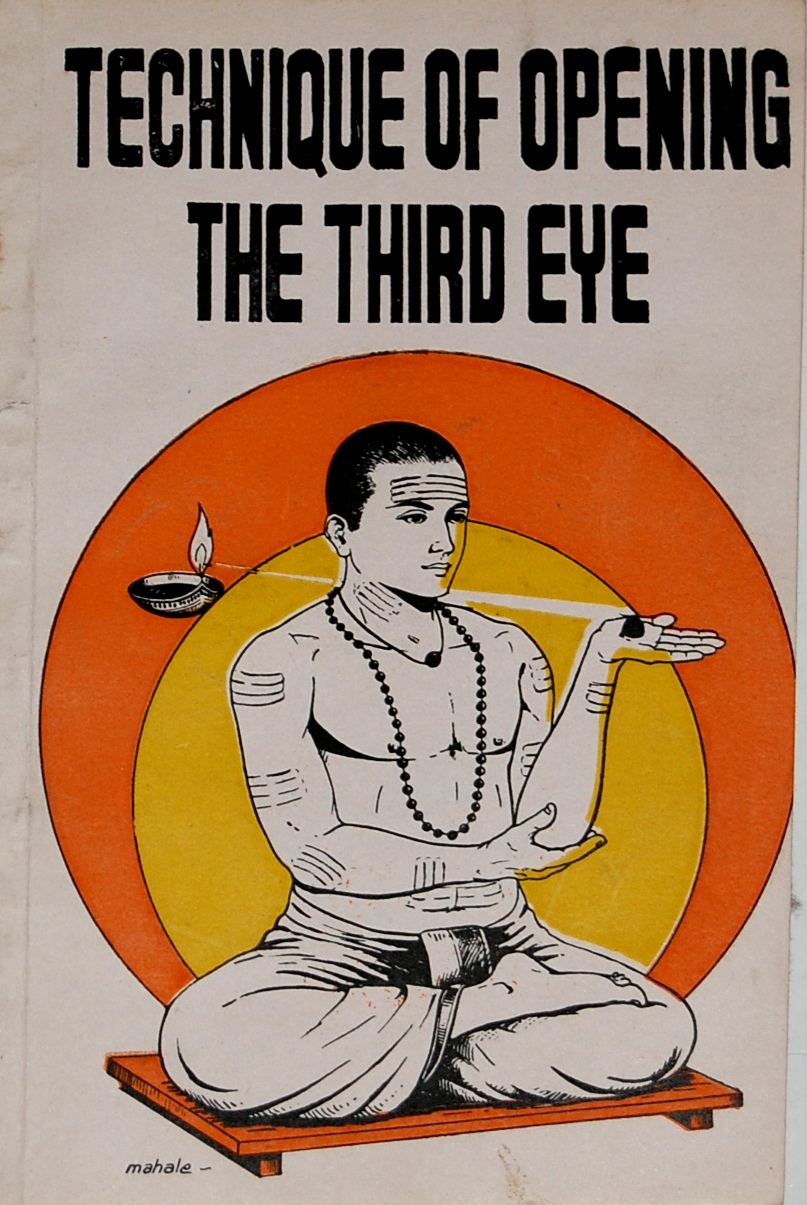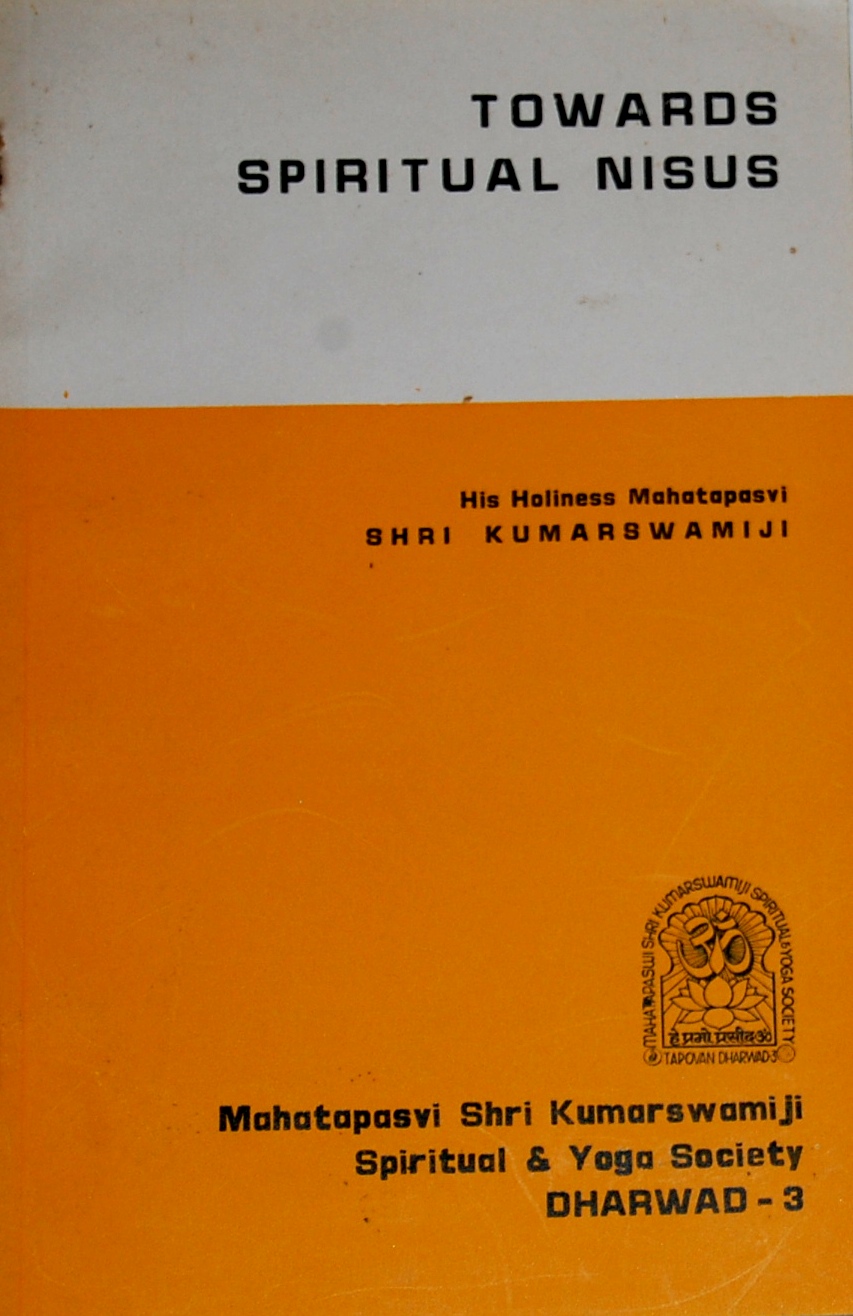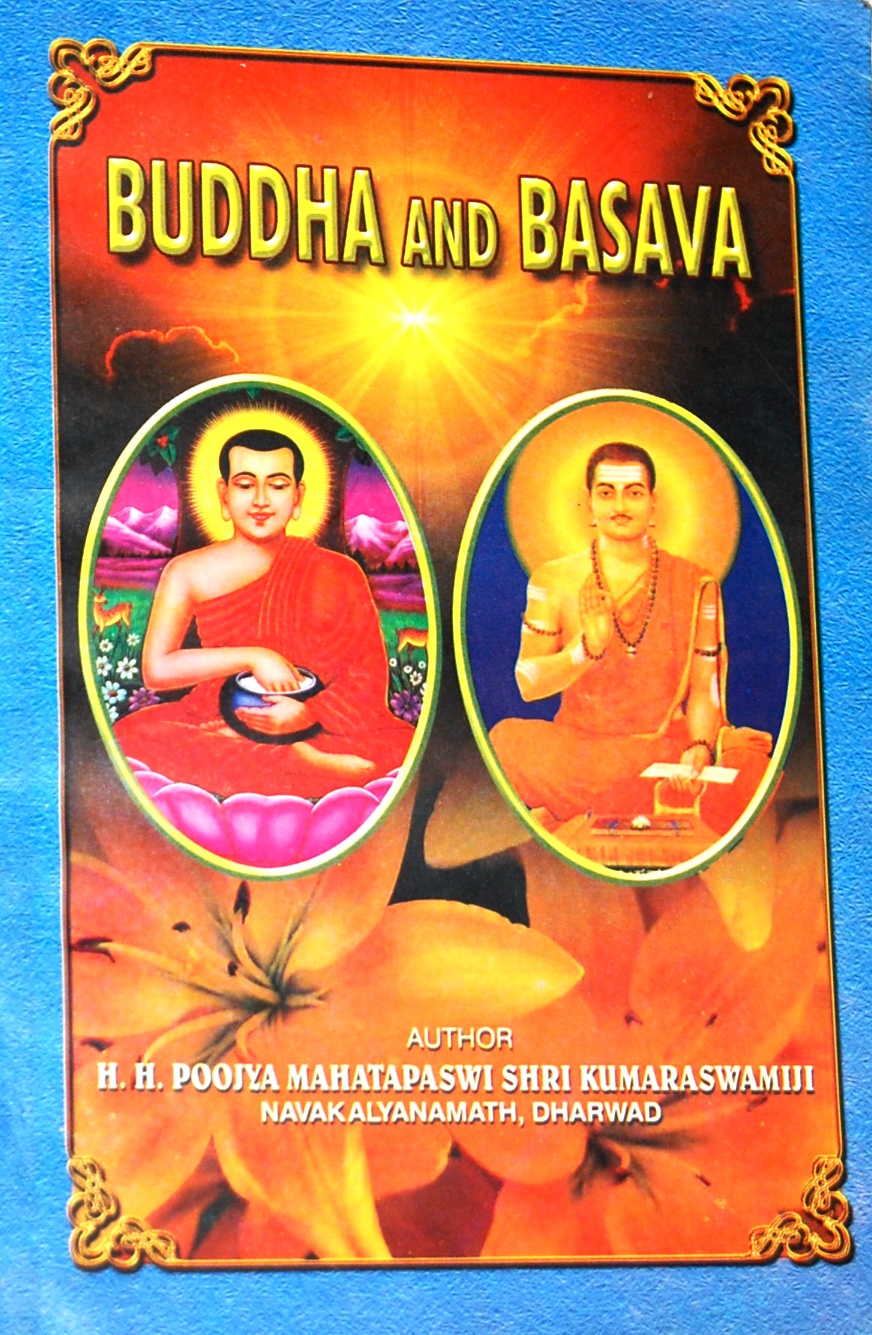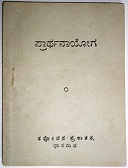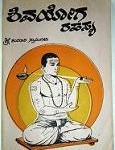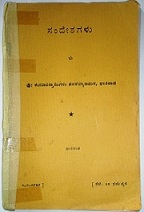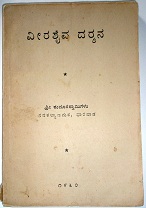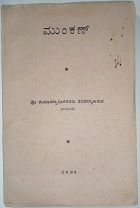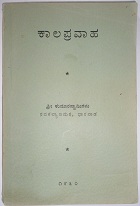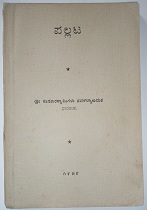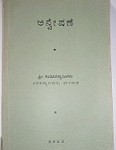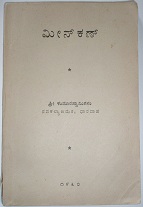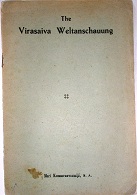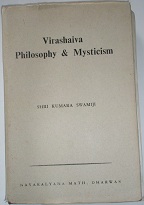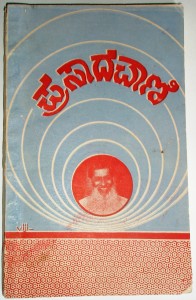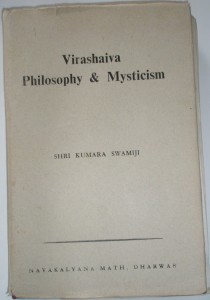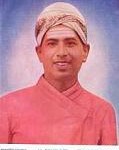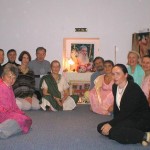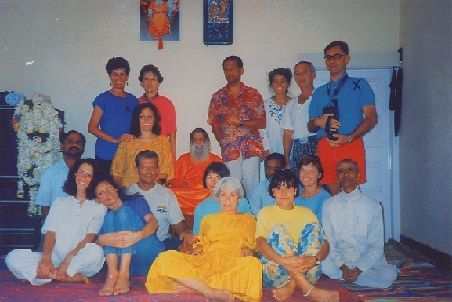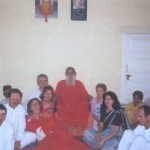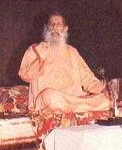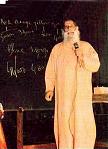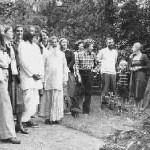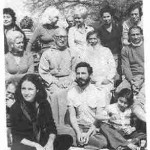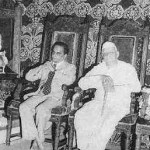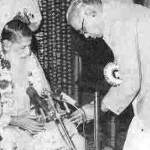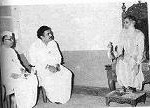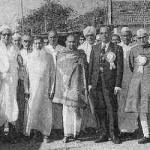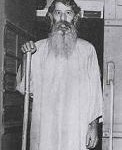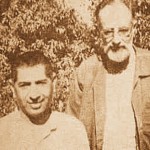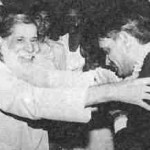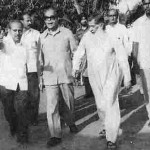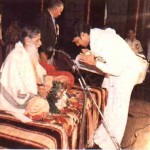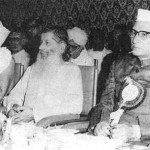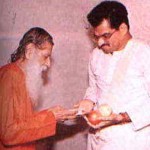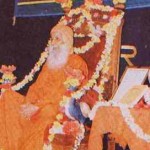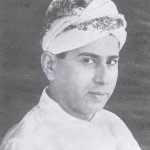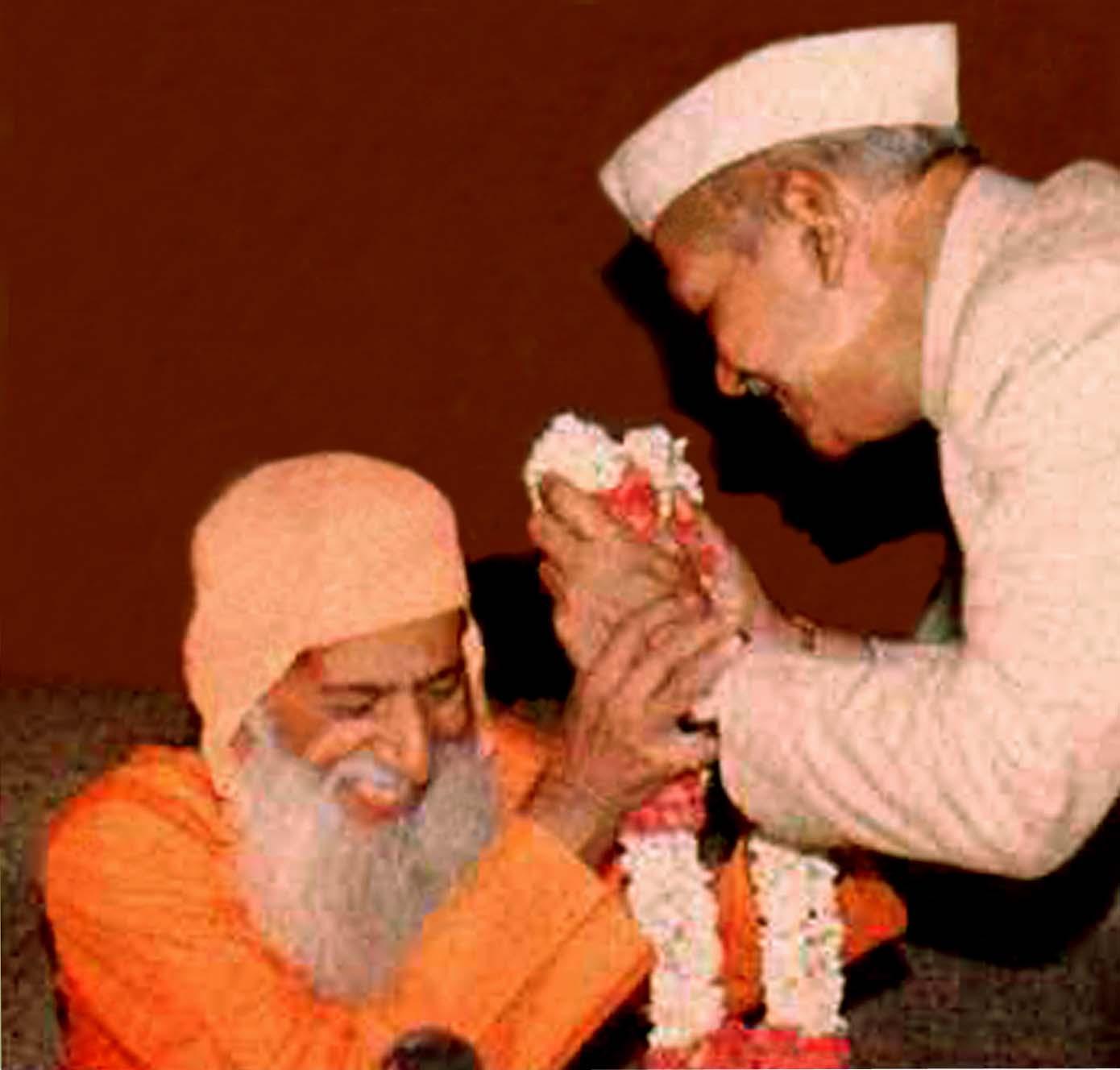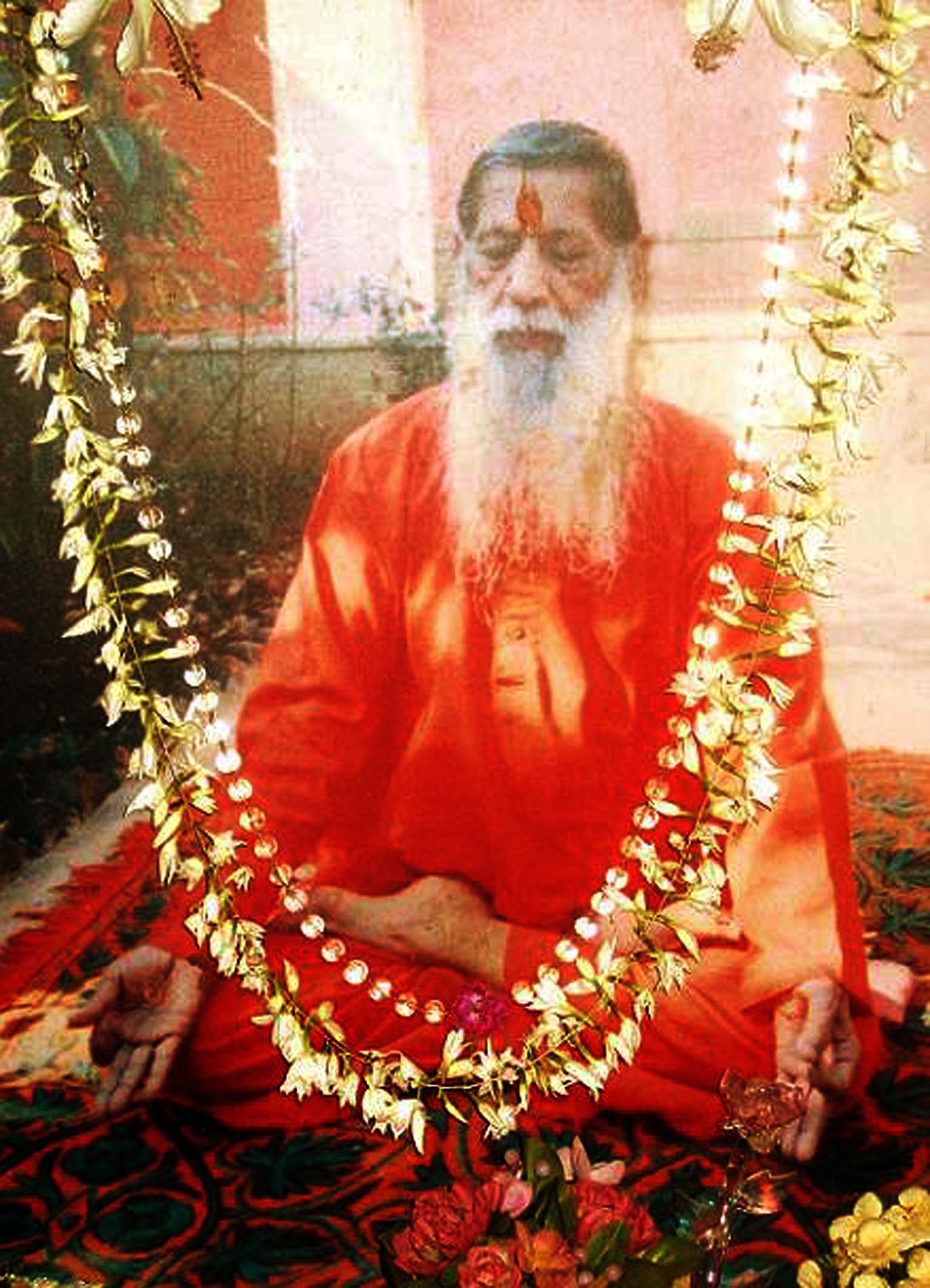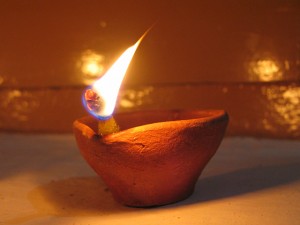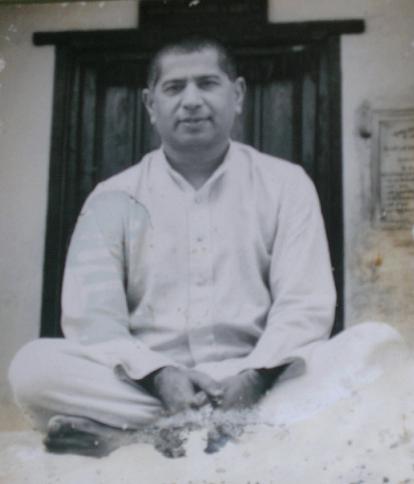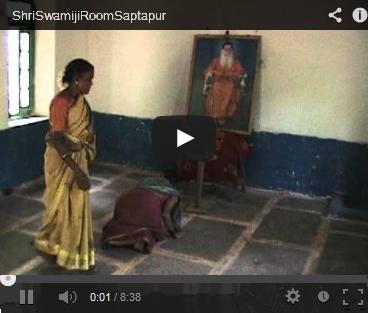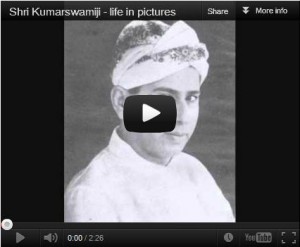Basava’s concept of state has religion as its foundation. His religion is theistic and reveals itself in the belief of God as transcendent and immanent, of the creation as his manifestation, of man as his receptacle, of association as the law of life and of duty as against rights. Rousseau also believed in God and he believed that a state could not be established without having religion as its foundation. But he confined himself within a narrow deism that placed God far off in heaven and never understood his universal life as manifested in creation. But Basava like Mazzini says that, “Sovereignty exists neither in the I nor in the people; it exists in God who is the source of life; in the progress that defines life and the moral law that defines duty.” Basava is very fond of the word Sanga which means association and in association he teaches men to be equals in god and it unites master and servant in the same love of heaven.
During the second half of the 12th century, Bijjala was a monarch of a small state and Basava was his Prime Minister. Basava, in addition to being a prime minister, was a great statesman. “The genius of a statesman lies in this, that he reflects on what is past, he foresees the future, he distributes and proportions things; he necessarily arms himself to struggle against adversity, as a swimmer against a rapid stream of water. In a word, he is attentive day and night that he may leave nothing to chance.” This is clearly reflected in the life and achievements of Basava as a commander-in-chief. The history of the world presents few instances in which the precision of a pragmatist and the fugitiveness of a mystic are demonstrated by one and the same individual. It was the strong belief of Basava that a state to prosper must be built on the foundations of moral character and this character is the principle element of its strength and the only guarantee of its permanence and prosperity. For the worth of the state is, in the long run, the worth of the individuals comprising it. State originates in the needs and necessities of life and continues its existence for the sake of good life. The state is, therefore, only the means through which the happiness of the individual can be brought about. The purpose of the state then, is to promote individual welfare and to realize the collective ends of the society. As the state is a means, it must provide for that environment in which man can rise to the full stature of his personality and potentiality. Monarchy, aristocracy, autocracy, democracy etc. are merely the different forms of government and the government is the mechanism of the state or rather it is the working agency on behalf of the state through which the purpose of the state is realized. If the purpose of the state is to promote the welfare of the individual and to achieve the collective ends of the society, the state must be ethical and moral in its action and outlook. For politics divorced from morals degenerates into a dirty game of hide and seek for power and power hungry politicians.
Basava was a prophet of high ethical and moral ideals; to him the divorce between politics and morals is a grave offense. He does not separate the individual from society, for they both act and react upon each other and thus enrich the political, economic, social and moral life of the society. In his attempt to realize a better order of human society, Basava devised a new moral strategy. He advocates the method of regulating along non-violent lines, group life in its political, economic and social aspects. He proclaims that there cannot be two consciences of man, one individual and the other social. The same code of morality, he observes, should regulate human conduct in all spheres of activity. In order to work out a synthesis between the individual and the group, between the moral and the political life. Basava begins with the regeneration of the individual as the individual is an integral part of society, he aims at a simultaneous reform of both. True morality, he maintains, should manifest itself in every action of the individual as individual and also as a member of society. Basava’s outlook may therefore be reduced to this formula: if an individual has to reform himself he must do so while concertedly reforming society.
In the state-craft there is always a disparity between the private morals and public morals. There is one set of morals for private consumption and another set of morals for public consumption. Basava banished this disparity and boldly proclaimed that the same moral code should regulate the private as well as the public life. He accordingly placed practice before precept and by his own life of rigid rectitude brought home to all the members of the society the lessons of self-purification. The state then had no creed in the real sense of the word. He gave it a creed and a programme and exhorted his countrymen to be soldiers true to both. He raised the moral level of the people and applied the same rules of conduct to the political as well as individual action. He insisted that an officer’s word should be as realizable as a mystic’s and that he should eschew all duplicity that goes by the name of diplomacy in politics. This effective coordination of the private and public morals, Basava termed justice and on this concept of state or in the idea of justice he based his activities. Indeed, we shall do well to suspect any doctrine which plumes itself on novelty. Truth changes her garments frequently but under new habit she always remains the same. In morals we need not expect startling innovations, for all moral concepts revolve round the good of the whole. Morality begins with association, interdependence and organization. Life in society requires the concession of some part of the individual’s sovereignty to the common order and ultimately the norm of conduct becomes the welfare of the group. What better cooperation could there be than the effective coordination between the private and public sector, between the individual and the groups? This is the goal of organization which every society must seek, if it would like to survive. Morality, said Jesus, is kindness to weak, morality said Nietzsche, is the bravery of the strong. Morality, said Basava, is the effective coordination of the whole.
From a remote time man has been given to think that might is right, that justice is the interest of the strong. The different forms of government make laws, democratic, aristocratic or autocratic, with a view to enhance their respective interests. These laws so made by them to serve their interests, they deliver to their subjects as justice and punish as unjust any one who transgresses them. This of course, is the doctrine which is more or less correctly associated with the name of Nietzsche who remarks thus: “Verily I laughed many a time over the weaklings who thought themselves good because they had lame paws.” Stirner expressed the same idea briefly when he said, “a handful of might is better than a bagful of right.” Perhaps nowhere in the history of philosophy is this doctrine better formulated than by Plato in Gorgians where the Sphist Callicles denounces morality as an invention of the weak to neutralize the strength of the strong. Basava set his face strongly against this doctrine and he sought to build his not on the strength of the strong but on the honesty of the good. He asks, is it better to be good or to be strong? He prefers goodness to strength, for he knows that to secure the ultimate good of all the members of the society is the one avowed purpose of state.
The ideal state is visualized by Plato is an aristocracy, ruled by a guardian class who received intensive education and are chosen in virtue of their ability to comprehend and maintain the principles on which the city is founded. The guardians live communally owning no private property in order that they may not be tempted by considerations of self-interest to admit any incentive to conduct other than the welfare of the state. The remainder of the population is divided into two classes, the soldiers and the workers, the former being entrusted with the duty of protecting and the latter of producing for the state. Justice is found in the contented performance by each class of citizens of the functions and duties appertaining to that class and the resolute refusal of the members of one class to interfere in the business of the other two. Hence Plato’s state is founded on a specialization of function, which springs from the principle that every man should do that only for which he is best suited and/or trained.
It seems that there are many things in Plato’s Dialogues which suggest a borrowl from the Indian seers who are reputed to have visited Greece or whose ideas and thoughts traveled to the shores of Greece. Dr Urwich made a brilliant effort in his Message of Plato to show that Plato’s Republic owes many of its most vital thoughts to the influence of India. Platonic psychology of reason, the spirited part and the appetitive part prima facie bears a striking resemblance to Sattva, Rajas and Tamas of Indian philosophy. Plato’s concept of state is more or less a replica of the Hindu idea of state based on Varnashrama. The Indian concept of state rests, on a four-fold division while Plato’s on the three-fold division, for Plato includes the commercial class into the working class. But Basava’s concept of state is founded the unity of life and the solidarity of man. Basava does not see life in water-tight compartments, for him life is one and unique and he does not drag any hard and fast line of demarcation between public life and private life. He does not favour the division of mankind into different castes and classes on the score of birth, or vocation. He does not even maintain the division of man on the ground of specialization of functions. He initiated a movement calculated to abolish the then class-ridden society; he preached the apotheosis of the common man and fought for his right. Like Plato, he did not divide society into the class of intellectuals and the mass of manual workers. Neither did he advocate the social maxim of philosophy for the few and mythology for the many. But he democraticised philosophy and religion and brought them to the door of the common man. Plato seems to secure the unity of state not by subordinating the personal and private interests of its members to the final Good, but by preventing any consciousness of such interest from arising; the result is that he reduces it to a mechanical instead of raising it to an organic unity. The organic unity is preserved in Basava’s concept of state by doing away with the superiority and inferiority complex from the social life and by retaining the relative freedom of the masses in the struggle for the common good of mankind.
Basava tried to introduce religion into politics, religion not in the sense of cult or creed but in the sense of pure morality and righteousness. He based his concept of state on the moral and spiritual values. The modern mind steeped in dialectical materialism ridicules this attempt either as utopian or as irrelevant. Consider the course of history. In the words of G.L.Dickinson the present age of ours is exactly like the age of ancient Greece. Of course, the Greek world was tiny and it was different in all its externals from our world. It had no railways, steamships, motor cars, telegraphs, telephones, television, wireless, cinemas, A-bomb, H-bomb and rockets. What of all these? These are the external trappings mixed like everything else of good and bad together. What makes the study of ancient Greece worthy for us is that it was faced by essentially the small political, philosophical and religious problems as ourselves and that it discussed them with courage of mind and a freshness of intellect. He would be a bold man who would seriously maintain that there has been general progress between the time of the Greeks and our own. There has been environmental progress but intrinsic progress is at a discount. It is not too much to say that the Pelopanesian war which ravaged Greece is a close parallel to the war of 1939. The mere scale is irrelevant but essentially the facts are the same. Since the facts are the same, the sages arise continually with the same message. Until the message of the sages is heard and accepted we shall not progress but only fluctuate; until we connect the moral life with politics and political life with the moral life, both will remain paralyzed. This is the riddle which the silen Sphinx sets to man age after age; man is still unable to solve the riddle, for he has no genuine faith in the unity of life and solidarity of man.
Attempts have been made in the past and in the present to introduce religion into politics, to connect the political life with the moral and spiritual. In the recorded history, Ashoka seems to be the first emperor to bring politics and ethics in close contact. His commandment runs thus: “Father and mother are to be obeyed; all living things are to be respected and truth must be spoken…Let the pupils revere the teacher, let courtesy to kin-folks prevail; this is the ancient law which leads to length of days.” “People perform various rites to bring prosperity or in sickness, or at marriages and births or on setting out on a journey…let these rites be performed, though they bear little fruit. But rich in fruit is the rite of Dharma. In it are included right treatment of slaves and servants, respect to teachers, gentleness to living things and liberality towards ascetics and Brahmins�.This rite is not merely of this world; it surely begets endless merit in the world to come and if it also should succeed in gaining, its end in this world, then the gain is two fold. There is no such alms giving as that of Dharma, the communication of piety, the distribution of piety, the kinship of piety.” We have in the ethics, as emphasized by Ashoka, an admirable foundation for great kingdom and also for a popular religion.
Basava’s concept of state has religion as its foundation. His religion is theistic and reveals itself in the belief of God as transcendent and immanent, of the creation as his manifestation, of man as his receptacle, of association as the law of life and of duty as against rights. Rousseau also believed in God and he believed that a state could not be established without having religion as its foundation. But he confined himself within a narrow deism that placed God far off in heaven and never understood his universal life as manifested in creation. But Basava like Mazzini says that, “Sovereignty exists neither in the I nor in the people; it exists in God who is the source of life; in the progress that defines life and the moral law that defines duty.” Basava is very fond of the word Sanga which means association and in association he teaches men to be equals in god and it unites master and servant in the same love of heaven. Basava does not accept any privileged class or a mediator between God and man; he suggests on the other hand, that the best amongst us in virtue and in knowledge of things may and ought to counsel and direct us on the right path, but without a monopoly of power or any class supremacy. “What is holy in heaven is holy on earth, and the communion of man in God brings as its consequence the association of men in earthly life.”
In Europe, Mazzini was a prophet of nationalism which had its roots in religion. He preached a progressive, universal and theistic religion which was the affirmation of liberty and association, of conscience and tradition, of man and humanity but which was the negation of materialism. Mazzini is clear and emphatic in saying that materialism denies humanity in which the religious sense, like the artistic and philosophical, is an inalienable element of life. It denies tradition, the harmony of which with the voice of individual inspiration and conscience, is the sole criterion of truth we possess on earth. It denies history which teaches us that religions are transitory but Religion is eternal. It denies the solemn witness borne in adoration of God and the ideal, by the long series of the greatest minds. It denies the power of revelation innate in man, in order to date the discovery of truth from the meager labours upon a fragment of creation studied by one single faculty of the mind of a scientist. The religious sentiment, he avers, is the divine fount of all activities, of all beliefs that have God for their beginning and humanity for their end, and which are animated by the spirit, without which every belief is passive and barren, every religion no more than a sect, every faith but a tradition, a habit and an outward possession. It is the religious sentiment which hallows the thoughts and actions of man, which enables the human creature in his own eyes and which gives him the consciousness of a mission to fulfill. The religious sentiment gives man the sense that God has not cast him at a venture upon this earth of trial, but that this existence is a function of universal life and harmony, a link in the great chain of beings, a necessary point in the line that connects man with God and our earth with his universe. It is that which makes all his life a sense of self-sacrifice and charity. The religious sentiment is brotherhood, association and love. From it flow strength and constancy in the struggle for these great principles, indifference to danger, noble resignation in persecution and misfortune. In a word, it is the foundation and bond of all social fellowship, the only pledge of security for the continuous and pacific progress of every people that desires to be a nation.
Mazzini made a declaration about the integral association of politics and religion in words convincing and candid. He did not rest content with a mere declaration but he lived the truth he preached and died for it. Listen to his declaration: “We believe in God and in a providential law given by him to life; in a Law, not of the atonement, not of the fall and redemption by the grace of past or present mediators between God and man, but of progress, unlimited progress founded on and measured by our works.”
We believe in the unity of life, in the unity of the law and in the immortality of Ego which is nothing but the application of the law of progress, revealed beyond doubt now and forever by historical tradition, by science, by the aspirations of the soul, to the life that is manifested in the individual. We believe in liberty by which alone exists responsibly the consciousness and price of progress, in the successive and increasing association of all human faculties and powers, as the sole normal means of progress at once collective and individual; in the unity of the human race and in the moral equality of all the children of God, without distinction of sex, colour or condition, to be forfeited by crime alone.
“Hence we believe in the holy, inexorable, dominating idea of Duty, the sole standard of Life; Duty that embraces in each one, according to the sphere in which he moves and the means that he possesses – Family, Fatherland and Humanity. Family is the altar of the Fatherland; Fatherland the sanctuary of Humanity and Humanity a part of the universe, a temple built to God who created the universe that it might draw near to him. We believe in duty that bids us promote the progress of others that our own may be affected and of ourselves that it may profit that of others; duty without which no right exists, that creates the virtue of self-sacrifice, in truth the only pure virtue, holy and mighty in power, the noblest jewel that crowns and hallows the human soul.
“We believe that to make politics an art and severe it from morality, as the royal statesman and diplomatists desire, is a sin before God and destructive to the people. The end of politics is the application of the moral law to the civil constitution of a Nation in its double activity – domestic and foreign. The end of economics is the application of the same law to the organization of labour in its double aspect of production and distribution. All that makes for that end is Good and must be promoted; all that contradicts it or gives it no help must be opposed till it succumbs. People and Government must proceed united like thought and action in individuals towards the accomplishment of that mission.”
In India, another prophet who thought of politics in moral and religious terms was Mahatma Gandhi. Gandhiji found himself involved in a struggle for national independence but he endeavoured to transform it, first by the substitution of Satyagraha for violence and second by the application to social and economic life of the principles of decentralization with a view to moralize the individual and society. Gandhiji prescribed certain principles to which human conduct should conform. These principles of truth, non-violence and scrupulous regard for means have eternal and enduring values. Truth is the first thing to be sought for, because there is no God higher than truth. To Gandhiji, truth and non-violence are inseparable since one presupposes the other. He who believes in non-violence, believes in the practice of truth and pursuit of truth meaning realization of spiritual unity through love and service to all. Gandhiji advocated that moral means must be adopted to achieve desirable results. He rejects the maxim that the end justifies the means. To him means are everything because means justify an end. The end is only the result of a series of acts that are undertaken as means. As is the means, so is the end. In this way, Gandhiji evolved a way of resisting evil through the organization of truth and non-violence or Satyagraha which means holding on to truth. Satyagraha is a weapon not of the weak but of the morally strong and he who is morally strong seeks to conquer evil by good and to resist physical force by soul force. He thereby seeks to convert the evil doer by cheerfully undertaking suffering instead of inflicting suffering upon the opponent.
Gandhiji said, “There is no politics devoid of religion.” By religion he meant not any particular creed or belief or cult. His religion means, “Belief in the ordered moral government of the universe.” He believed in God and to him God was truth. In fact, religion was the very breath of Gandhihi’s being. He said, “at the back of every word that I have uttered since I have known what public life is and of every act that I have done, there has been a religious consciousness and a down-right religious motive. Gandhiji took part in politics simply because it was an unavoidable evil for him. “If I take part in politics,” he declared, “it is only because politics today encircles us like the coils of the snake. I wish to wrestle with the snake. I am trying to introduce religion into politics. He who does not know what patriotism or feeling for one’s country is, does not know his true duty or religion,” and “those who say that religion has nothing to do with politics, do not know what religion means.” Gandhiji hoped to be able to transform violence and coercion by the substitution of Satyagraha but his hopes remained unrealized. Such is the case with Basava and Mazzini. It is pertinent here to recall the words of Aldous Huxley: “Gandhi, like Thomas Jefferson, thought of politics in moral and religious terms. That is why his proposed solution bears a very close resemblance to those proposed by the great American. That he went further than Jefferson – for example, in recommending economic as well as political decentralization and in advocating the use of Satyagraha in place of the Ward’s elementary exercises of militia – is due to the fact that his ethics were more radical and his religion more profoundly realistic that Jefferson’s. Jefferson’s plan was not adopted; nor was Gandhiji’s. So much the worse for us and our descendents”.
Huxley strikes a note of despair. Basava, Mazzini and Gandhiji were three great prophets who thought of politics in terms of morality and religion. They were great idealists and therefore were practical men. It is the practical men who are frequently confronted, for all their excellence, with defeat. In the face of this condition it is natural that the seers in the end should despair. There is a strain of the despair in Plato’s later work. But we must bear in mind that, generation after generation, the “Prophets will rise like the phoenix from the ashes of despair.”
” Alas, Alas!
Thou hast smitten the world
Thou has laid it low,
Shattered, overthrown,
Into nothingness hurled
Crushed by a demi-god’s blow!
We bear them away,
The shards of the world,
We sing well a day
Over the loveliness gone,
Over the beauty slain.
Build it again,
Great child of the Earth,
Build it again,
With a finer worth,
In thine own bosom build it on high!
Take up they life once more;
Run the race again!
High clear
Let a lovelier strain
Ring out than ever before!”
— Goethe’s Faust
This article is taken from H.H.Shri Kumarswamiji-s book, ‘Veerashaivism: Comparative Study of Allama Prabhu, Basava,Shunya-Sampadane and Vachana Shastra’.








